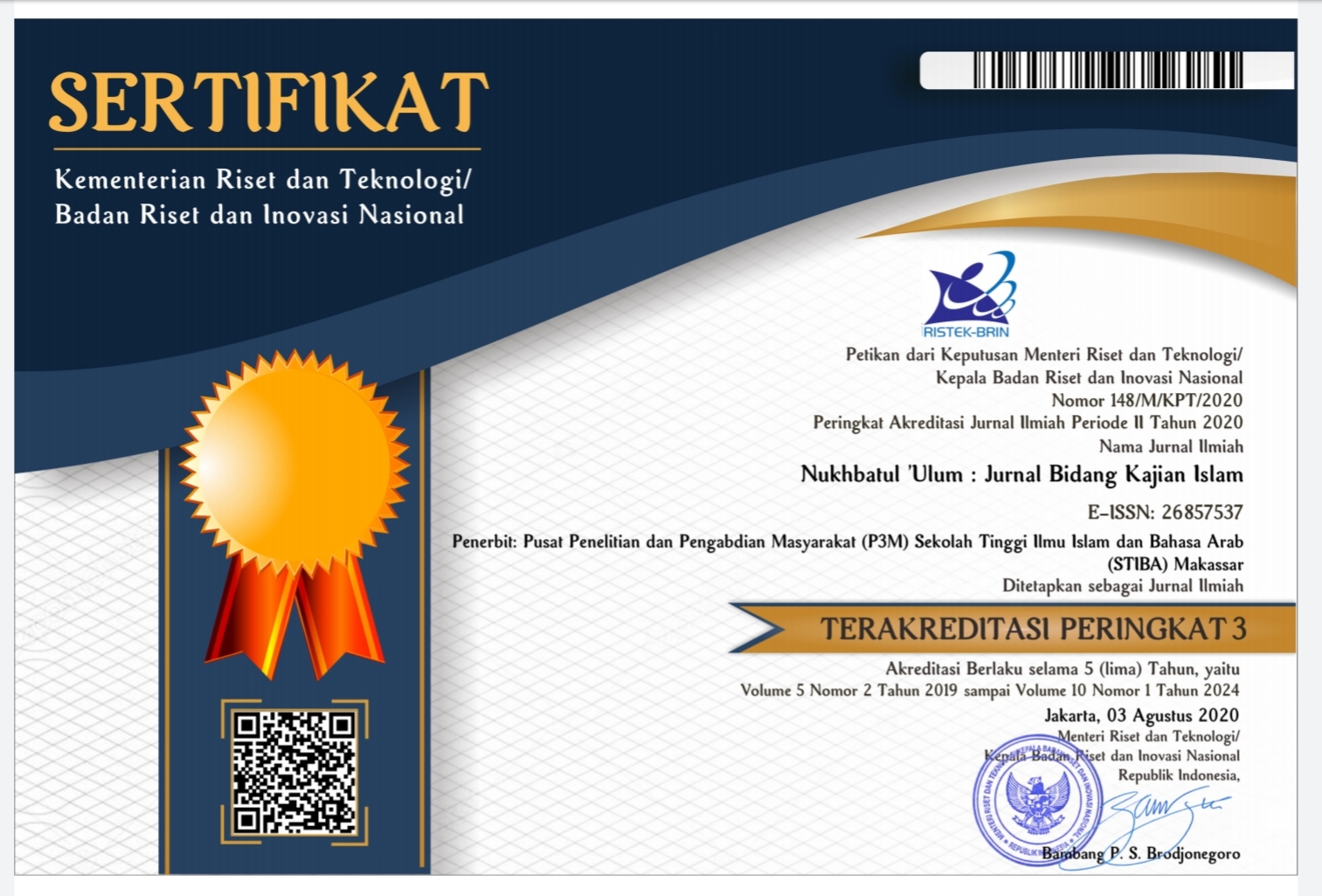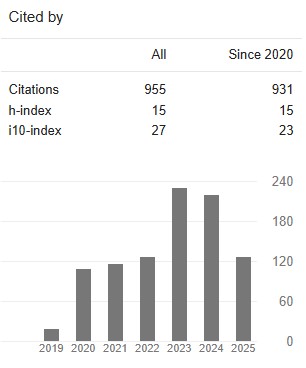Pernikahan Baru Tanpa Akta Cerai
The New Marriage Without the Proof of Divorce
DOI:
https://doi.org/10.36701/nukhbah.v5i2.88Keywords:
Sociology; Psychology; LawAbstract
This study explains that Paradigms are a concept of thought that is acquired in certain problems or cases so that the delivery can be understood and understood, the problem being examined is the main factor of divorce what happened to the community, not through the judiciary and the role of Islamic religious instructors in responding to the new marriage process in the community of the Buku Raya village in the Belang District that did not have proof of divorce. The researcher approached qualitative research (case study) in order to obtain data in the field validly and aimed to describe and analyze critically what happened in the field so as to produce data that the role of Islamic religious instructors in providing understanding to society must be truly understood by the community itself so that they are not easy to make decisions, and religious educators are also present from people who have good religious understanding. This research is expected to be able to provide advice and thoughts to the Community and the Government specifically the Ministry of Religion in selecting and sorting extension workers in the religious affairs office.
Downloads
References
Moleong, L. J. (2010) Metodologi Penelitian Kualitatif. XXVII. Bandung: Remaja Rosdakarya.
Narbuko, C. (2009) Metode Penelitian. Jakarta: Bumi Aksara.
Presiden Republik Indonesia (1975) ‘PP No. 9 Tahun 1975 Tentang Pelaksanaan UU Perkawinan’, p. h. 11.
Prianto, B., Wulandari, N. W. and Rahmawati, A. (2013) ‘Rendahnya Komitmen Dalam Perkawinan Sebagai Sebab Perceraian’, Jurnal Komunitas: Research and Learning in Sociology and Anthropology, 5(2), p. h. 209. doi: 10.15294/komunitas.v6i1.2938.
Sarwono, J. (2006) Metode Penelitian Kuantitatif & Kualitatif. I, Graha Ilmu. I. Yogyakarta.
Sekretariat-Negara-RI (1974) Undang-undang Republik Indonesia Nomor 1 Tahun 1974 Tentang Perkawinan, UU Negara Republik Indonesia. Jakarta: Yayasan Peduli Anak Negeri (YPAN).
Subekti, T. (2010) ‘Sahnya Perkawinan Menurut Undang-Undang Nomor 1 Tahun 1974 Tentang Perkawinan Ditinjau Dari Hukum Perjanjian’, Jurnal Dinamika Hukum, 10(3), pp. 329–338.
Tihami, T. (2014) Fikih Munakahhat : Kajian Fikih Nikah Lengkap. Jakarta: Grasindo.
Syaifuddin, Muhammad., et. al. (2013). Hukum Perceraian, Sinar Grafika, Jakarta
Kompilasi Hukum Islam
Sobari, A., Bachtiar, M., & Fitriani, R. (2016). Perkawinan Janda tanpa Akta Cerai di Kepenghuluan Karya Mukti Kecamatan Rimba Melintang Kabupaten Rokan Hilir. Jurnal Online Mahasiswa Fakultas Hukum Universitas Riau, 3(2), 1-15.
Adillah, S. U. (2016). ImplIkasI Hukum DarI perkawInan sIrI TerHaDap perempuan Dan anak. PALASTREN Jurnal Studi Gender, 7(1), 193-222.
Putusan Mahkamah Konstitusi Nomor 46/ PUU-VIII / 2010
Gunawan, E., & Hasan, F. (2017). Divorce Lawsuit Due to Polygamy in the Manado Religious Court. Al-Mizan, 13(2), 272-293.
Kurniawan, A. (2011). Uregnsi Penyluh Agama. Jurnal Ilmu Dakwah. 5(17).
Syamsuddin, S. (2019). Efektivitas Peran Penyuluh Agama Islam dalam Penerapan Hukum Perkawinan Islam di Masyarakat Pedesaan (Studi Kasus di Kecamatan Mare Kabupaten Bone). Al-Risalah: Jurnal Hukum Keluarga Islam (Ahwal Al-Syakhsiyah), 3(1), 96-112.
Jaya, P. H. I. (2017). Revitalisasi Peran Penyuluh Agama Dalam Fungsinya Sebagai Konselor Dan Pendamping Masyarakat. KONSELING RELIGI Jurnal Bimbingan Konseling Islam, 8(2), 335-356.


















